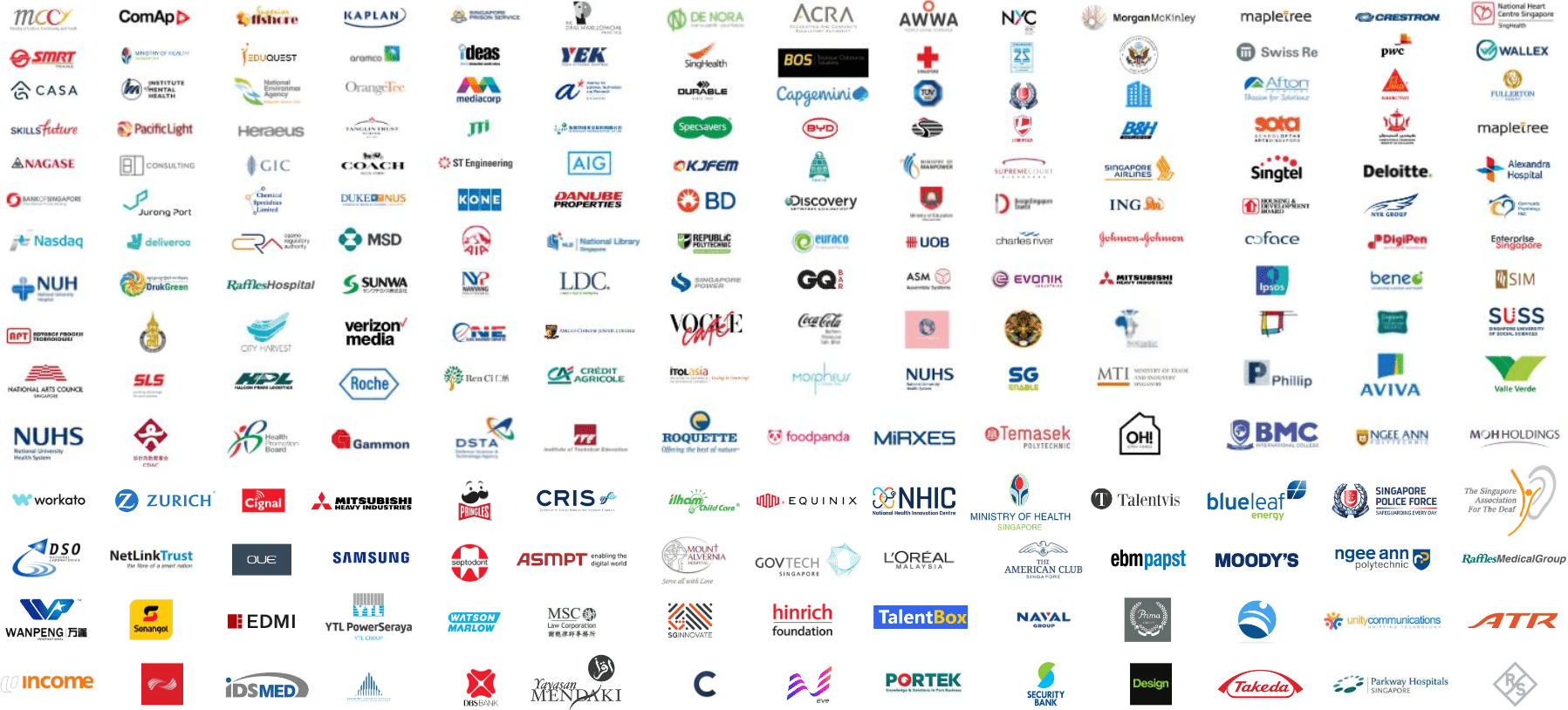Leadership in Crisis Management Training Course in Kenya
Our Leadership Courses in Kenya is also available in Nairobi, Mombasa, Kisumu, Nakuru, Eldoret, Thika, Malindi, Kitale, Garissa, Kakamega, Nyeri, Meru, Machakos, Lamu, Nanyuki, Kisii, Kitui, Kericho, Ruiru, Kapenguria, Bungoma, Athi River, Busia, Homa Bay, Isiolo, Voi, Webuye, Mumias, Kilifi, Diani Beach, Watamu, Naivasha.
In the heart of Kenya’s diverse landscape, where resilience meets innovation, the need for effective crisis management is paramount. From natural disasters to socio-political unrest and global pandemics, the ability to navigate turbulent times with grace and efficacy is a hallmark of strong leadership. Welcome to the Leadership in Crisis Management Training Course in Kenya, where leaders learn to steer their organizations through adversity with confidence and compassion.
This immersive course offers a comprehensive exploration of crisis management principles tailored to the unique challenges faced in Kenya. Participants delve into the complexities of crisis preparedness, response, and recovery, gaining practical skills and insights to lead their teams through even the most daunting of situations. Through interactive workshops, case studies, and simulations, learners are equipped with the tools and strategies needed to mitigate risks, maintain business continuity, and safeguard the well-being of their stakeholders.
At the core of this training lies a commitment to fostering ethical leadership grounded in integrity and empathy. As participants engage in discussions on crisis communication, decision-making, and stakeholder engagement, they cultivate a deep understanding of their role as stewards of trust and transparency in times of uncertainty. By championing openness and accountability, leaders emerge poised to build trust, inspire confidence, and navigate crises with integrity.
Moreover, this course transcends traditional boundaries, embracing a holistic approach that recognises the interconnectedness of crises and their broader impacts. Participants explore strategies for community resilience, humanitarian response, and cross-sector collaboration, recognising the importance of collective action in times of crisis. Through strategic partnerships and shared learning, leaders harness the power of collaboration to build stronger, more resilient communities across Kenya.
In essence, the Leadership in Crisis Management Training Course in Kenya serves as a beacon of hope and resilience for leaders across sectors. By equipping participants with the knowledge, skills, and ethical framework needed to navigate crises with integrity and compassion, this transformative programme empowers them to lead with confidence and foresight in the face of adversity. Join us on this journey of leadership and crisis management excellence, and together, let us build a brighter, more resilient future for Kenya.
Who Should Attend this Leadership in Crisis Management Training Course in Kenya
Amidst the vibrant tapestry of Kenya’s diverse landscape, leaders are often called upon to navigate through unexpected challenges and crises. The Leadership in Crisis Management Training Course in Kenya stands as a beacon of preparedness and resilience, offering a transformative learning experience for individuals poised to lead in times of adversity. Rooted in the ethos of proactive leadership and tailored to the unique context of Kenya, this course provides participants with the tools and insights needed to navigate crises with confidence and compassion.
This immersive course is designed for a wide range of professionals and leaders who are responsible for managing crises or preparing their organizations for potential emergencies. Participants may include government officials, NGO leaders, emergency responders, healthcare professionals, corporate executives, community leaders, and risk management professionals. Whether they are seeking to enhance their crisis management skills or develop proactive strategies to safeguard their organizations and communities, this course offers valuable knowledge and practical guidance.
Through a blend of theoretical learning, case studies, and interactive simulations, participants will explore key aspects of crisis management, including risk assessment, crisis communication, decision-making under pressure, and post-crisis recovery. By delving into real-world scenarios and best practices, learners will gain actionable insights to effectively lead their teams through crises, mitigate risks, and foster resilience. Join us on this journey of leadership and crisis management excellence with the Leadership in Crisis Management Training Course in Kenya.
- Executives
- Team Leaders
- Entrepreneurs
- Educators
- Recent Graduates
Course Duration for Leadership in Crisis Management Training Course in Kenya
Embark on a transformative journey of crisis management leadership with the Leadership in Crisis Management Training Course in Kenya, offering flexible training options to suit various schedules. Immerse yourself in an intensive exploration of crisis management principles over three full days, where participants engage in interactive workshops and simulations to hone their skills. Alternatively, for those with limited time availability, a one-day option provides a focused overview of key concepts essential for effective crisis leadership within the context of Kenya.
- 2 Full Days
- 9 a.m to 5 p.m
Course Benefits of Leadership in Crisis Management Training Course in Kenya
Discover the invaluable skills and insights needed to navigate crises with confidence and resilience through the Leadership in Crisis Management Training Course in Kenya.
- Develop a comprehensive understanding of crisis management principles and best practices.
- Enhance leadership skills to effectively lead teams through challenging situations.
- Learn crisis communication strategies to maintain trust and transparency with stakeholders.
- Gain practical experience through interactive simulations and case studies.
- Foster resilience within organizations and communities to withstand adversity.
- Build proactive strategies to mitigate risks and prevent crises from escalating.
- Develop decision-making skills under pressure to ensure effective crisis response.
- Strengthen coordination and collaboration among stakeholders during crises.
- Implement post-crisis recovery plans to facilitate smooth transitions and rebuild trust.
- Stay updated on emerging trends and technologies shaping the field of crisis management.
Course Objectives for Leadership in Crisis Management Training Course in Kenya
The Leadership in Crisis Management Training Course in Kenya aims to equip participants with the knowledge and skills necessary to effectively navigate and manage crises in various contexts. Through a blend of theoretical learning and practical application, participants will develop the leadership acumen and crisis management strategies needed to lead their organizations through turbulent times.
- Identify potential crisis triggers and assess risks within their organizations.
- Develop proactive crisis management plans tailored to their specific contexts.
- Cultivate effective crisis communication strategies to maintain transparency and trust.
- Enhance decision-making skills to make timely and informed choices during crises.
- Foster resilience within their teams and organizations to withstand adversity.
- Coordinate and collaborate with stakeholders to ensure a unified crisis response.
- Implement strategies to mitigate the impact of crises on their organizations and communities.
- Facilitate post-crisis recovery efforts to restore operations and rebuild trust.
- Stay abreast of emerging trends and best practices in crisis management.
- Conduct thorough post-crisis evaluations to identify areas for improvement and lessons learned.
- Develop strategies for adapting crisis management plans to changing circumstances.
- Build strong networks and partnerships to enhance crisis preparedness and response capabilities.
Course Content for Leadership in Crisis Management Training Course in Kenya
Immerse yourself in the dynamic world of crisis management with the Leadership in Crisis Management Training Course in Kenya, where participants explore essential topics tailored to navigating and mitigating crises in various organizational contexts.
- Identifying Potential Crisis Triggers and Assessing Risks:
- Conducting risk assessments to identify vulnerabilities and potential crisis triggers.
- Analysing past incidents and industry trends to anticipate future risks.
- Identifying internal and external factors that may escalate into crises.
- Developing Proactive Crisis Management Plans:
- Creating comprehensive crisis management plans tailored to organizational structures and objectives.
- Establishing clear roles and responsibilities for crisis management team members.
- Implementing protocols for effective communication and decision-making during crises.
- Cultivating Effective Crisis Communication Strategies:
- Establishing communication channels for timely and transparent crisis communication.
- Training spokespersons to deliver consistent and reassuring messages to stakeholders.
- Developing messaging frameworks to address various stakeholder concerns and inquiries.
- Enhancing Decision-Making Skills:
- Simulating crisis scenarios to practice making decisions under pressure.
- Utilizing decision-making frameworks and tools to assess risks and evaluate options.
- Considering ethical implications and long-term consequences when making crisis-related decisions.
- Fostering Resilience within Teams and Organizations:
- Providing training and resources to help employees cope with stress and adversity.
- Building a culture of resilience through open communication and support networks.
- Implementing strategies to bounce back quickly from crises and adapt to changing circumstances.
- Coordinating and Collaborating with Stakeholders:
- Establishing partnerships with government agencies, NGOs, and other stakeholders to coordinate crisis response efforts.
- Conducting joint training exercises and tabletop simulations to enhance collaboration.
- Utilizing technology platforms to facilitate real-time communication and information sharing during crises.
- Implementing Strategies to Mitigate the Impact of Crises:
- Developing contingency plans and resource allocation strategies to minimize the impact of crises on operations.
- Implementing business continuity measures to ensure essential services remain operational during crises.
- Engaging in community outreach and support initiatives to mitigate the social impact of crises.
- Facilitating Post-Crisis Recovery Efforts:
- Conducting post-crisis debriefings to assess response effectiveness and identify areas for improvement.
- Developing strategies to rebuild trust and reputation in the aftermath of a crisis.
- Implementing lessons learned from past crises to enhance future crisis preparedness and response.
- Staying Abreast of Emerging Trends and Best Practices:
- Participating in industry conferences, webinars, and training sessions to stay informed about the latest developments in crisis management.
- Engaging in professional development activities to enhance skills and knowledge in crisis management.
- Networking with peers and industry experts to exchange insights and best practices in crisis management.
- Conducting Thorough Post-Crisis Evaluations:
- Collecting feedback from stakeholders to evaluate the effectiveness of crisis response efforts.
- Conducting root cause analyses to identify systemic issues contributing to crises.
- Developing action plans to address identified weaknesses and improve crisis preparedness.
- Developing Strategies for Adapting Crisis Management Plans:
- Reviewing and updating crisis management plans in response to changes in organizational structure or objectives.
- Conducting scenario planning exercises to anticipate future crises and develop response strategies.
- Implementing a continuous improvement process to ensure crisis management plans remain relevant and effective.
- Building Strong Networks and Partnerships:
- Establishing relationships with industry peers, government agencies, and other stakeholders to share resources and expertise.
- Participating in cross-sector collaborations and information-sharing initiatives to enhance crisis preparedness and response capabilities.
- Engaging in community outreach and collaboration to build trust and resilience in the face of crises.
Upcoming Course and Course Brochure Download for Leadership in Crisis Management Training Course in Kenya
Stay informed about the latest updates and details on how to access brochures for the upcoming Leadership in Crisis Management Training Course in Kenya, where you’ll find comprehensive information on course objectives, content, and registration details. Keep an eye out for announcements to ensure you don’t miss out on this transformative opportunity to enhance your crisis management skills and lead with confidence in challenging times. Get ready to embark on a journey of resilience and leadership with the Leadership in Crisis Management Training Course in Kenya.


